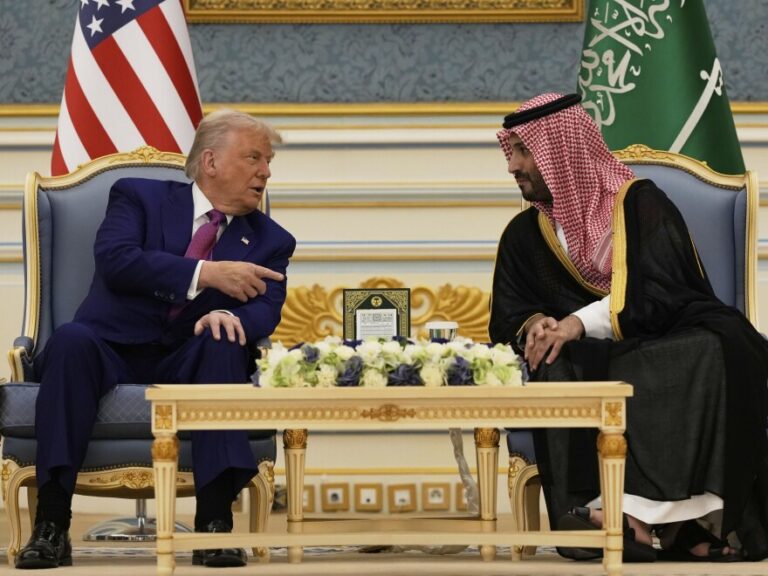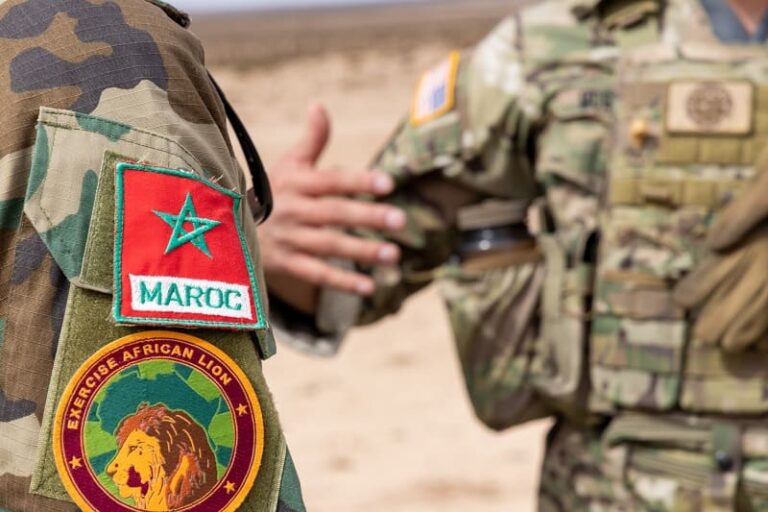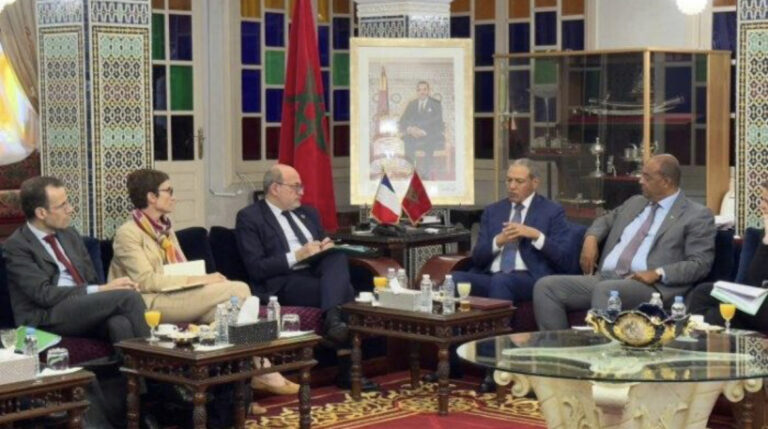
- The earthquake in Al-Haouz on September 8, 2023, was a moment of great sorrow and pain, but it also highlighted the vital role of civil society and the spontaneous acts of solidarity and mutual support that emerged in the aftermath of the tragedy. It emphasized the sacrifices made by state institutions, both civilian and military. His Majesty the King expressed condolences for the victims and prayers for the recovery of the injured.
- The Moroccan people displayed spontaneous solidarity, and the world applauded the admirable initiatives, including material assistance, acts of compassion, cleanup campaigns, and psychological support. The government and various ministries, including territorial administration, health, and equipment, played an essential role, as did the Royal Armed Forces in rescuing and assisting affected populations.
- Morocco’s handling of foreign aid during this earthquake was commendable. Many countries offered assistance and support, and His Majesty the King thanked them for their help during this trying time.
- The success in managing the earthquake’s aftermath was not just due to material resources but also to the manifestation of “authentic Moroccan values.” These values, enshrined in the Constitution, serve as the cornerstone of national unity and social cohesion. They are religious, spiritual, patriotic, and embody solidarity and cohesion.
- The role of these values, especially during the earthquake in Al-Haouz, demonstrated Morocco’s ability to handle natural disasters and post-disaster reconstruction effectively.
- The Discourse also focused on the importance of family values and the sanctity of family ties. Family is the basic unit of society, and Morocco has undertaken significant reforms to preserve and strengthen this institution. The revision of the Family Code (Moudawana) and direct social assistance to needy families were highlighted.
- His Majesty emphasized the critical role of family in society. A strong society is built upon strong families. The values of religion, patriotism, solidarity, and social cohesion are integral to Moroccan society.
- The Royal Discourse highlighted the forthcoming implementation of the “direct social assistance” program, identifying its beneficiaries and purposes. It also emphasized the legal framework, implementation principles, and the need for continuous evaluation to improve social development indicators and safeguard society against emergencies and fluctuations.
- The program aims to combat poverty, support the needy, and enhance social and human development indicators, expanding the circle of beneficiaries to include families with elderly dependents.
- The Royal Speech called upon the government to ensure the successful implementation of the social assistance program, using material resources and good governance principles.
- It also emphasized the role of the Parliament and the government in promoting national values and implementing policies and programs.
- The Royal Discourse underscores the crucial role of the Parliament and the government in upholding and promoting the unifying values that define Moroccan society’s identity and uniqueness.
This Royal Speech serves as a guide for public policies rooted in the unifying national values that shape Moroccan society’s identity and reflect the country’s distinctive experience. It also outlines the roles of the legislative and executive institutions in promoting these values and the nation’s greater interests.
FULL SPEECH
HM the King Addresses Parliament on the Opening of the 1st Session of the 3rd Legislative Year of the 11th Legislature (Full Speech)
Date: October 13, 2023 Location: Rabat
In the name of God, the Most Compassionate, the Most Merciful.
Honorable Members of Parliament,
It was the divine will of Almighty God that a devastating earthquake would strike our nation, leaving behind numerous martyrs and a considerable number of injured individuals. May they find a swift recovery, by God’s grace. This calamity has been an agonizing ordeal that touched the hearts of the King and the Moroccan people, extending from Tangiers to Lagouira, spanning from the eastern to the western regions of our beloved land.
As the Word of God rightfully states, “Say, ‘Nothing will happen to us except what God has decreed for us.'” We fervently pray to Almighty God to bring stability to His land, out of His mercy for the weak and the underprivileged among His servants, for He is the Most Merciful.
While earthquakes bring about destruction, we are steadfast in our resolve to rehabilitate and rebuild the areas that have been devastated. Therefore, it is imperative that we continue providing support to affected families, expedite the restoration and reconstruction efforts in the afflicted regions, and ensure the availability of essential services.
Beyond the harrowing tragedy, what consoles us and fills us with pride is the remarkable response of civil society and the entire Moroccan populace, both within the nation and abroad, who have demonstrated profound and spontaneous solidarity with their fellow compatriots in distress.
I must also extend my commendation to the Royal Armed Forces, the various emergency and security agencies, government authorities, and local governments for their unwavering sacrifices in rescuing and aiding the inhabitants of the affected regions.
Moreover, I wish to reiterate my heartfelt gratitude to our friends and sister nations who demonstrated their solidarity with the Moroccan people and stood by us during those painful circumstances.
Ladies and gentlemen,
This tragedy has underscored the enduring presence of genuine Moroccan values that have been our guiding light. These values have empowered our nation to overcome adversity and crises, rendering us not only stronger but also resolute in our pursuit, characterized by unwavering confidence and optimism.
These values form the bedrock of our unity and the cohesion of Moroccan society. These unifying national values are enshrined within our Constitution. They encompass all aspects of our rich Moroccan identity and are in harmony with universal values.
I refer specifically to the values that constitute the essence of our unified national identity:
- Religious and Spiritual Values: Foremost among these is the value of Maliki Sunni Islam, anchored in the Commandership of the Faithful. It promotes moderation, openness, tolerance, and interfaith and intercultural coexistence. Morocco stands as a model of coexistence between Moroccans, Muslims, and Jews. It is a nation where diverse faiths and cultures are held in deep respect.
- National Values: These values are grounded in the monarchy, unanimously supported by all Moroccans, uniting all segments of the Moroccan populace. The monarchy’s foundation is the strong cohesion and mutual allegiance—Bei’a—between the throne and the people. Love for the homeland, as well as unanimity regarding the nation’s unity and territorial integrity, are timeless and unchanging values that unite Moroccans across their diverse and unified identity.
- Values of Solidarity and Social Cohesion: These values bolster the unity of Moroccan society across generations, groups, and regions. This unity nurtures different segments of society, reinforcing one another. The adherence to these values not only consolidates our national unity and family cohesion but also preserves human dignity and fosters social justice—a crucial necessity in the current rapidly evolving global landscape, where the prominence of values and reference points is in constant decline.
Ladies and gentlemen,
In alignment with these national values, which hold the family and family bonds as sacred, I have addressed a letter to the Head of Government to revisit the Family Code. According to our Constitution, the family is the cornerstone of society, and I have consistently worked to ensure that the conditions conducive to family cohesion are in place.
For a society to function effectively, the family must remain intact and balanced. The disintegration of the family causes societies to lose their moral compass. As such, I have endeavored to enhance our identity through significant projects, including the extensive social protection project, which I consider a pillar of our social and development model.
By the grace of the Almighty, we will commence the implementation of the direct social assistance program at the end of this year. In addition to disbursing family allowances, I have ensured that the program supports specific social segments in need.
This assistance will encompass school-age children, children with disabilities, newborns, and vulnerable families without school-age children, particularly those supporting the elderly.
The program will raise the living standards of target families and contribute to the fight against poverty, vulnerability, while improving social and human development indicators. Societies are more productive and resilient when they are deeply committed to solidarity.
Consequently, the government has been directed to adopt a comprehensive approach for the program’s implementation, following the principles of the framework law on social protection enacted by Parliament.
The program will be executed gradually, considering allocated funds, optimal coverage, disbursed amounts, and assistance management. We emphasize the importance of upholding the principles of solidarity, transparency, and equity, ensuring assistance reaches those who truly need it.
I implore the government to prioritize the rationalization of existing social benefit schemes, ensuring their efficacy and sustainable financing. To ensure the program’s continuous development and evaluation, a special monitoring and evaluation mechanism must be established.
The role of Parliament in embodying and disseminating these time-honored values, implementing major projects and reforms, and safeguarding the nation’s causes and best interests is crucial. I close with the words of the Almighty, “And they will say: ‘Praise be to Allah, who has removed from us (all) sorrow: for our Lord is indeed Oft-Forgiving, Ready to appreciate (service).” Truly, the Word of God.





